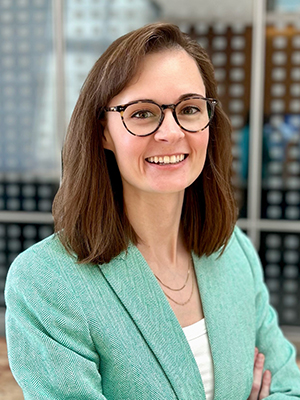School of Music
- SC.edu
- Study
- Colleges and Schools
- School of Music
- Faculty and Staff
- Emily Schwitzgebel
Faculty and Staff
Emily Schwitzgebel
| Title: | Assistant Professor of Music and Artificial Intelligence (AI) |
| Department: | Theory and Composition School of Music |
| Email: | eschwitzgebel@sc.edu |
| Office: | Room 015 |

Emily Schwitzgebel is Assistant Professor of Music and Artificial Intelligence (AI) at the University of South Carolina. She holds degrees from Northwestern University (Ph.D., Music Theory & Cognition), the University of Massachusetts Amherst (M.M., Music Theory), and the College of Wooster (B.M., Music Theory & Composition). As a music theorist with a particular interest in listener perception, her research examines the real-time experience of post-millennial pop music listening, showing how existing music-analytical frameworks can be complemented by the analysis of social and technological mediations.
Schwitzgebel is a strong advocate for interdisciplinary approaches, and she aims to engage with a wide range of methodologies, including behavioral study, corpus study, computational analysis, music information retrieval, and autoethnography. Using these methodologies, her current work interrogates the cognitive and communicative constraints of post-millennial pop listening, positing that structural and societal aspects of music are fundamentally intertwined and consistently updated to constrain the listening experience. Altogether, she highlights the influences of texture, timbre, and machine learning algorithms on listeners’ expectations. This work and other work has been recognized at such conferences as the national meetings of the Society for Music Theory and the Society for Music Perception and Cognition, as well as at international and regional music conferences, and has appeared in Music Theory Online and Music Perception.
Outside of this research, Schwitzgebel takes an active role in collaboration among scholars, proposing outreach endeavors that focus on how to conduct empirical music research, leading workshops that outline the ethics and pedagogy of artificial intelligence in higher education, and organizing interdisciplinary panel events. She promotes inclusive and accessible course design, adopting a similarly collaborative approach as a pedagogue. In the classroom, she centers individual experiences of listening as a primary means of teaching music theory, drawing on her expertise in music cognition to bridge the gap between scholarship and pedagogy.